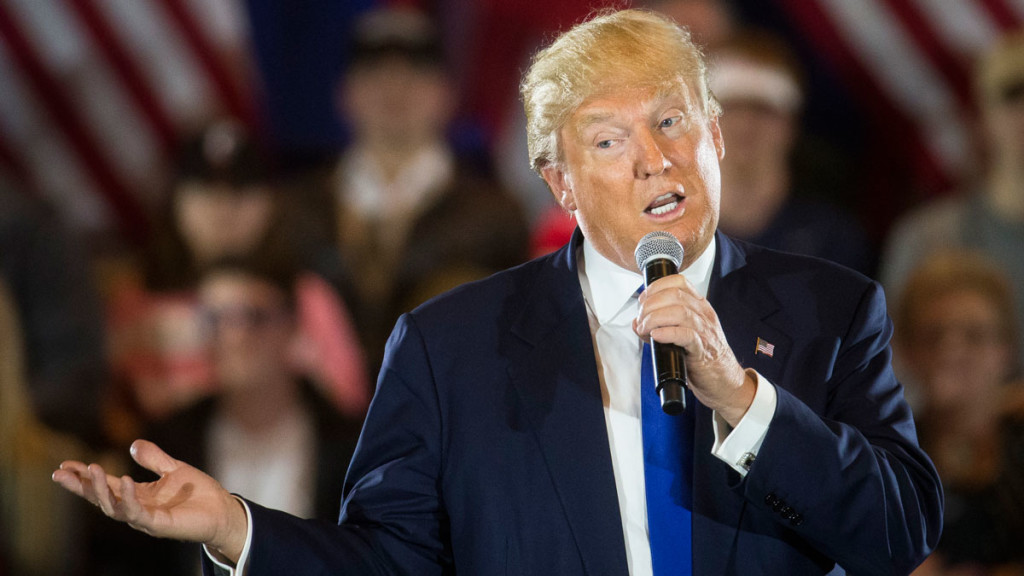Donald Trump scrambles to address delegate fight

He is the Republican Party’s undisputed front-runner, yet Donald Trump‘s White House aspirations may now depend on a messy fight for delegates he is only now scrambling to address. Trump’s campaign on Monday vowed to pursue legal action against the Republican National Committee to protect his recent victory in Louisiana, one of many states that feature complicated rules allowing campaigns to influence the presidential nominating process weeks or months after their votes have been counted. A similar process plays out nationwide every four years. Yet Trump’s outsider candidacy is so far driven largely by media coverage instead of the on-the-ground organization that rival Ted Cruz boasts. Now, Trump must play catch up — especially in the chase for delegates previously bound to former candidate Marco Rubio. “A lot of Trump’s support has been through earned media, so you haven’t had the need to really focus on that aspect of it,” said Jason Osborne, one of several former Ben Carson aides tapped in recent weeks to undertake Trump’s delegate outreach. “But that doesn’t mean you can’t get up to speed pretty quickly on it.” Indeed, Trump’s campaign on Tuesday will announce plans to open a Washington, D.C. office to run its delegate operation and congressional relations team, said campaign senior adviser Barry Bennett. In addition to the new space, Bennett said Trump has hired a veteran political operative to serve as the campaign’s convention manager. Paul Manafort, a seasoned Washington hand with decades of convention experience, will oversee the campaign’s “entire convention presence” including a potential contested convention, said Bennett. The move marks a major escalation in Trump’s willingness to play by party rules and build alliances in a political system he has so far shunned. It comes as Trump faces a Republican nomination battle that will almost certainly extend until the final day of primary voting on June 7 — or even to the party’s July national convention in Cleveland — if he fails to secure the delegate majority needed to become the presumptive nominee. In a campaign season so far defined by extraordinary insults and extreme rhetoric, the 2016 Republican presidential nomination fight could ultimately be decided by lawmakers, party activists and lawyers. Selecting the people who will be delegates at the national convention is a tedious process governed by rules that vary from state to state. In some states, like New Hampshire and California, the candidates submit slates of delegates — actual people who would presumably be loyal at a contested convention. In states like Louisiana, Iowa, Nevada and many others, delegates are selected at state and congressional district conventions and caucuses. To prevent mischief, the national party adopted a rule requiring delegates to vote, on the first ballot at the convention, to vote for the candidate who won them. “Honestly, I’m new to the operation. It’s obviously not perfect,” said Trump aide Ed Brookover, who was Carson’s former campaign manager. Brookover vowed Trump would have “an active presence” at every one of the upcoming lower-profile conventions and caucuses where delegates are selected. That includes this weekend’s state convention in North Dakota, where 25 delegates will be selected. All of them — in addition to the state’s three national committee members — will be free to support the candidate of their choosing at the GOP’s national July convention. Carson himself will appear in North Dakota on Trump’s behalf, Brookover said, as part of outreach efforts that include hospitality suites for delegates, campaign surrogates, parliamentarians and support staff for all upcoming contests. It takes 1,237 delegates to win the Republican nomination. Trump, with 739 delegates, is the only candidate with a realistic path to clinching the nomination by the end of the primaries on June 7. Rubio’s recent exit gave Trump’s rivals an opening to help make his path harder. Most delegates are free to support the candidate of their choice if their preferred candidate drops out. The Florida senator suspended his campaign earlier in the month after accumulating 166 delegates — a trove that Cruz’s campaign is aggressively courting. A dispute in Louisiana highlights Trump’s challenge. Rubio won five delegates in Louisiana’s March 5 primary, people who became free agents after he suspended his campaign. At Louisiana’s subsequent GOP convention, Cruz’s campaign secured all of Rubio’s delegates, as well as five others who were uncommitted. As a result, Cruz could end up with more delegates from Louisiana, even though Trump narrowly won the state’s popular vote. Bennett said the campaign would formally challenge the certification of Louisiana’s delegates during the Republican National Committee’s summer meeting. Trump is most upset, he said, that Cruz’s campaign pushed its Louisiana supporters onto the national convention’s powerful rules committee. Bennett predicted Trump would accumulate 1,460 delegates before the convention, making legal action unnecessary. That’s more than enough to claim the nomination outright even if Cruz successfully peels away some of his support in the coming months. Louisiana GOP executive director Jason Dore, one of the uncommitted delegates for the state, acknowledged Cruz has had a stronger ground game in Louisiana than Trump and has worked on attracting delegates since the beginning. As for the threat of a lawsuit, Dore said: “I don’t know who he’d be suing because these 10 delegates are free to support whoever they want under the rules. The party or I can’t force them to vote any way.” He said the delegate allocation formulas were crafted in compliance with the RNC. “We consulted with the RNC and followed their advice,” Dore said. Republished with permission of the Associated Press.


